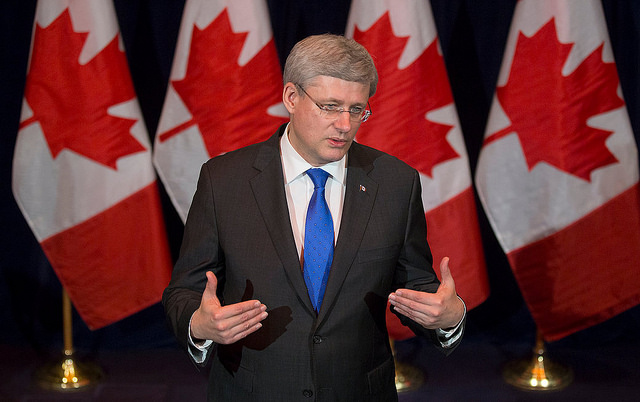Next week the Harper government is going to push forward with its at best redundant and at worst disastrous balanced budget legislation.
Legislation dictating and limiting the choices of future governments is a peculiar and, some would say, perverse notion.
Most governments leave their successors to their own devices, choosing to focus on what they can reasonably accomplish during their own time in office.
That challenge keeps them busy enough.
However, if the Prime Minister were seriously looking for opportunities to re-write the rules of the game for future Parliaments, there are better options than dangerous (and hypocritical) balanced budget legislation.
Here are some suggestions.
1. Pass a law banning omnibus legislation.
Such a law would specify that it is illegal to slip a bill abolishing the Fisheries Act or radically altering the federal environmental assessment process into the fine print of a 300-page budget implementation bill.
The No-More-Omnibus-Legislation Act would oblige governments to introduce new laws dealing with diverse policy matters separately.
Such laws would have to follow the normal legislative process, which would include hearings at the relevant committee, with a full list of witnesses.
All committee members — both on the government and opposition sides — would be encouraged to propose amendments as they saw fit, in order to strengthen and improve proposed legislation.
2. Introduce new standing orders for Parliamentary committees to make them truly independent and effective.
New rules for committees would exclude the Cabinet Minister understudies known as Parliamentary Secretaries from them.
A committee’s work should be independent of the cabinet, not, as it too often is now, controlled and orchestrated by the Minister’s agent.
The new rules would also include having Committee Chairs elected by all Members of Parliament in secret ballot votes, the way the Speaker is elected.
And the rules would stipulate that committee meetings should, with very few exceptions, be open. Committees could only go into in-camera session for limited, specified reasons, which would have to be made public.
These rules would apply to all committees, including the secretive House of Commons Board of Internal Economy.
3. Pass a law stipulating that all proposed laws would have to state how they satisfy Section 35 of the Canadian Constitution, which requires that they respect “existing Aboriginal and treaty rights.”
The process for assuring compliance with Section 35 would have to be done openly.
The House and committees of Parliament would have the right to require government officials to explain precisely how they determined a bill before Parliament fully respects Aboriginal rights.
4. Introduce a rule to the effect that all government advertising would have to go to the Auditor General (AG) for prior approval.
The AG’s job would be to ensure that such advertising conveys genuine, useful information (about, for instance, government services and regulations), and is not partisan and political.
5. Amend the “Safe Designated Country of Origin” provision in the package of refugee reforms Parliament passed in 2012, to remove the Minister of Immigration’s unilateral, unchecked power to declare any country “safe.”
As provided in the refugee reform bill passed (with Opposition support) by the minority Parliament prior to the 2011 election, the process for determining a “safe country” would be open and transparent.
The amendment would ensure that the “safe country” process is based solely on evidence, not political considerations such as a government’s desire to sign trade deals with certain countries.
The power to designate “Safe Countries of Origin” would belong not to the Minister but, rather, to all Members of Parliament, aided by recognized experts in international affairs and human rights.
There you have it.
A few concrete suggestions for the Prime Minister, if he and his government have so much time on their hands they are looking to keep themselves busy by tying the hands of future governments.



